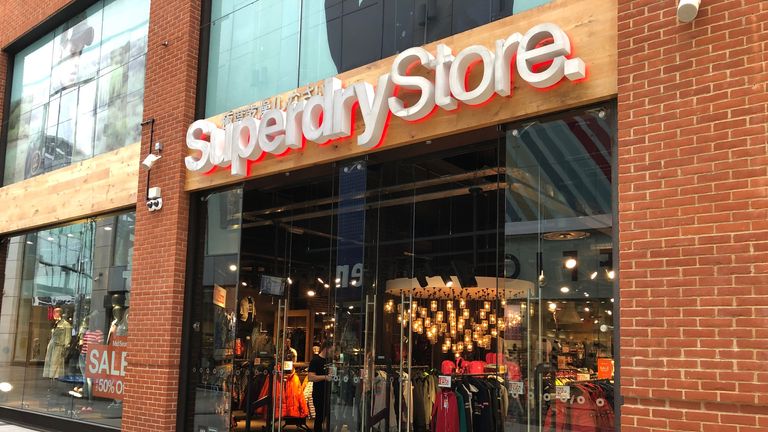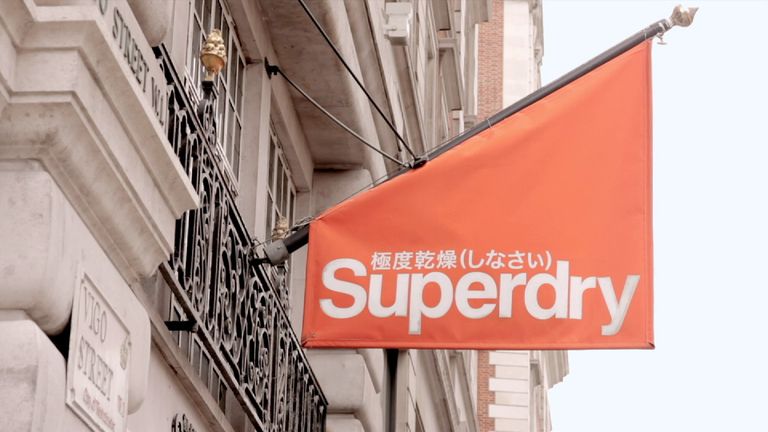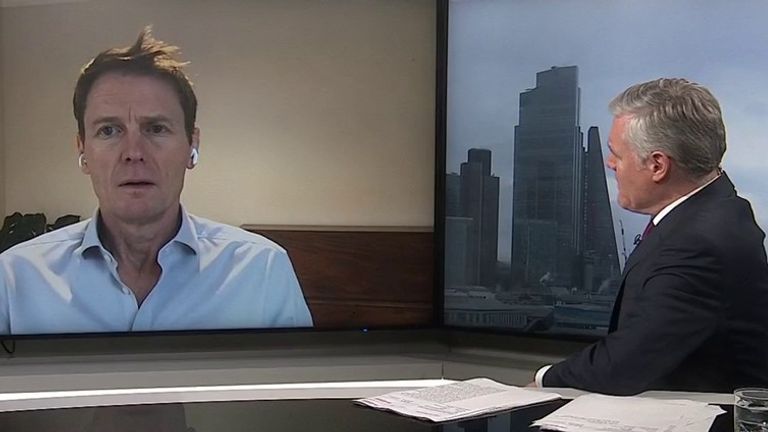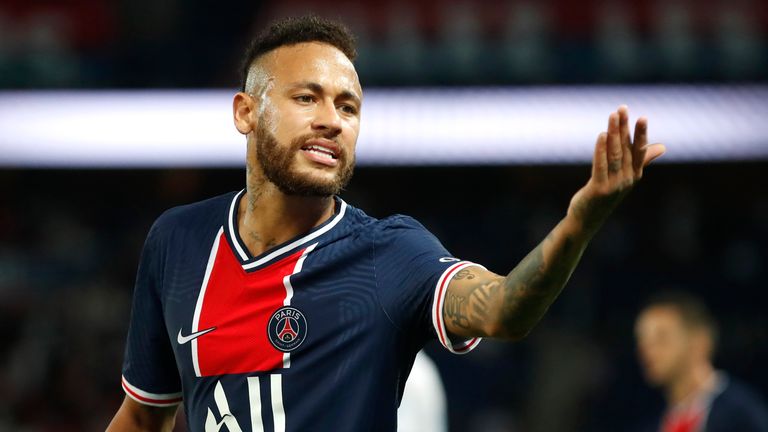The UK high street is in the deep freeze and Superdry, the fashion retailer, emerged on Tuesday as one of the major casualties of coronavirus.
The company, a stock market darling after it first went public in 2010, reported a half year pre-tax loss of £18.9m - up from £4.2m in the same period a year earlier - on the back of a 23.4% drop in sales to £282.7m.
The period covered is up to 24 October last year and, accordingly, does not take into account the COVID-19 national lockdown in November or the tiered restrictions in much of the country which had a similar affect in December, let alone the latest national lockdown.
Superdry also issued a so-called "going concern" statement, warning shareholders: "The risks of the recovery in consumer demand, the group's ability to capture this during the autumn/winter 2020 season, and the ability of the group to meet the new covenants from debt providers represent material uncertainty and may cast significant doubt on the group's ability to continue as a going concern."
Shares of Superdry fell by 19% at one point before rallying.
These are hardly the circumstances that Superdry's founder, Julian Dunkerton, could have hoped for or expected when, in April 2019, he masterminded a coup which reinstated him on the board of the company he founded with his business partner, James Holder, in 2003.
His return to the board was followed by the departures of the company's chairman, chief executive, chief financial officer and the head of its remuneration committee.
Mr Dunkerton, who had left in 2018 because he was unhappy with the strategy, engineered the coup because, he said, "seeing my life's work being destroyed was destroying me".
He moved from being interim chief executive to permanent chief executive shortly before Christmas.
Ever since the boardroom coup, investors have had one question: can Mr Dunkerton, whose career in fashion began with a single clothing store at Cheltenham market in 1985, restore the fortunes of what was once one of Europe's hottest fashion brands?
Answering that question is impossible given the current situation.
However, speaking to City analysts today, Mr Dunkerton did his best to accentuate the positives.
Firstly, he played down the 'going concern' issue, stressing that it was a technicality which had also appeared in the company's last results announcement, in September last year, while also highlighting the £70m facility Superdry has with its lenders - which is currently undrawn - and its net cash of £54.8m.
Secondly, he sought to address some of the issues arising from the pandemic, citing the actions being taken to cut costs and access government support.
The former came to £13.5m during the period while the latter came to £11.5m - £8.1m in rates relief and £3.4m in furlough money.
Further savings are expected during the second half of the financial year but, with nearly three-quarters of the group's 170 outlets currently closed, it will clearly be a slog.
Benedict Smith, the interim chief financial officer, told analysts the company is "modelling a return to UK business rates from April" but said that, due to the ongoing uncertainty, Superdry would not for now be guiding the market on its expectations for the full year results.
Interestingly, given the vital importance to fashion retailers of not being left with stock and having minimising the amount that is put on sale, Mr Dunkerton revealed Superdry was "phasing" its stock purchases all the way through the season - giving it more flexibility in May and June than it would traditionally have - and was now sitting on less inventory than it was a year ago.
That said, due to store closures, there was still a need for a "tactical clearance" to clear excess stock.
Online sales, as might have been expected, grew strongly during the period but the importance of physical stores to Superdry is underlined by the fact that, even though the business lost more than two-fifths of available store trading days due to lockdown closures, ecommerce still only accounted for half of all retail sales during the period.
The company is also trying to renegotiate store rents so more of them are based on turnover and has also dropped some wholesale contracts - including one with the US department store Macy's - which, in Mr Dunkerton's words, "just didn't make any sense, didn't make any money".
The third thing Mr Dunkerton had to address is, longer term, probably the most important - the "brand reset" he promised when he returned to the business. Central to this is reconnecting with the group's target customers, 16-24 year olds, via initiatives such as campaigns on the social media platform TikTok with Zara Larsson, the singer and influencer, as well as launches of sustainable products such as vegan trainers.
Mr Dunkerton said that Superdry was now working with more than 100 influencers across the UK, France, Germany and Sweden that was already driving more traffic to its social sites.
Another key strand of this reset is the partnership, announced shortly before Christmas, Superdry has signed with the Brazilian footballer Neymar Jr.
Mr Dunkerton explained: "This is a genuine statement of our intent for the brand's ambition… we have secured a three year deal which will focus on championing sustainability through our organic cotton underwear and sleepwear.
"Neymar provides us with the ability to communicate with his global audience of 143 million social media followers…and, with the World Cup in 2022 maximising this exposure, this will drive a step change in digital marketing activity."
He said the partnership with Neymar was only "a start" on what Superdry hopes to achieve with its marketing.
Seizing back share of the sport fashion and 'athleisure' markets, into which Nike and Adidas have been successfully encroaching, will also be another strand to the strategy in addition to building on the brand's share of the streetwear market.
Clearly, then, this is a company trying to do an awful lot - although it is very difficult to peer through the fog of COVID-19 right now and assess the progress being made. Mr Dunkerton highlighted improvements in Superdry's "net promoter score" - the likelihood of a customer recommending a company's products or services to friends or colleagues - and a recent report from KPMG, the business services group, suggesting it is outperforming peers in both menswear and womenswear.
But it is early days.
In the meantime, the share price - which had rallied after the traumatic sell-off last March that the whole market suffered - has started to drift again. The shares are now less than half the price that they were when, shortly after his return, Mr Dunkerton issued Superdry's third profits warning in a year.
From a peak of £1.7bn, the company's stock market value is now just £196m. Mr Dunkerton, who owns 20.3% of the business, has been buying shares in recent months - showing that he backs himself to pull off a turnaround.
If investors fail to share that faith, it would be no surprise to see him taking Superdry private again.






